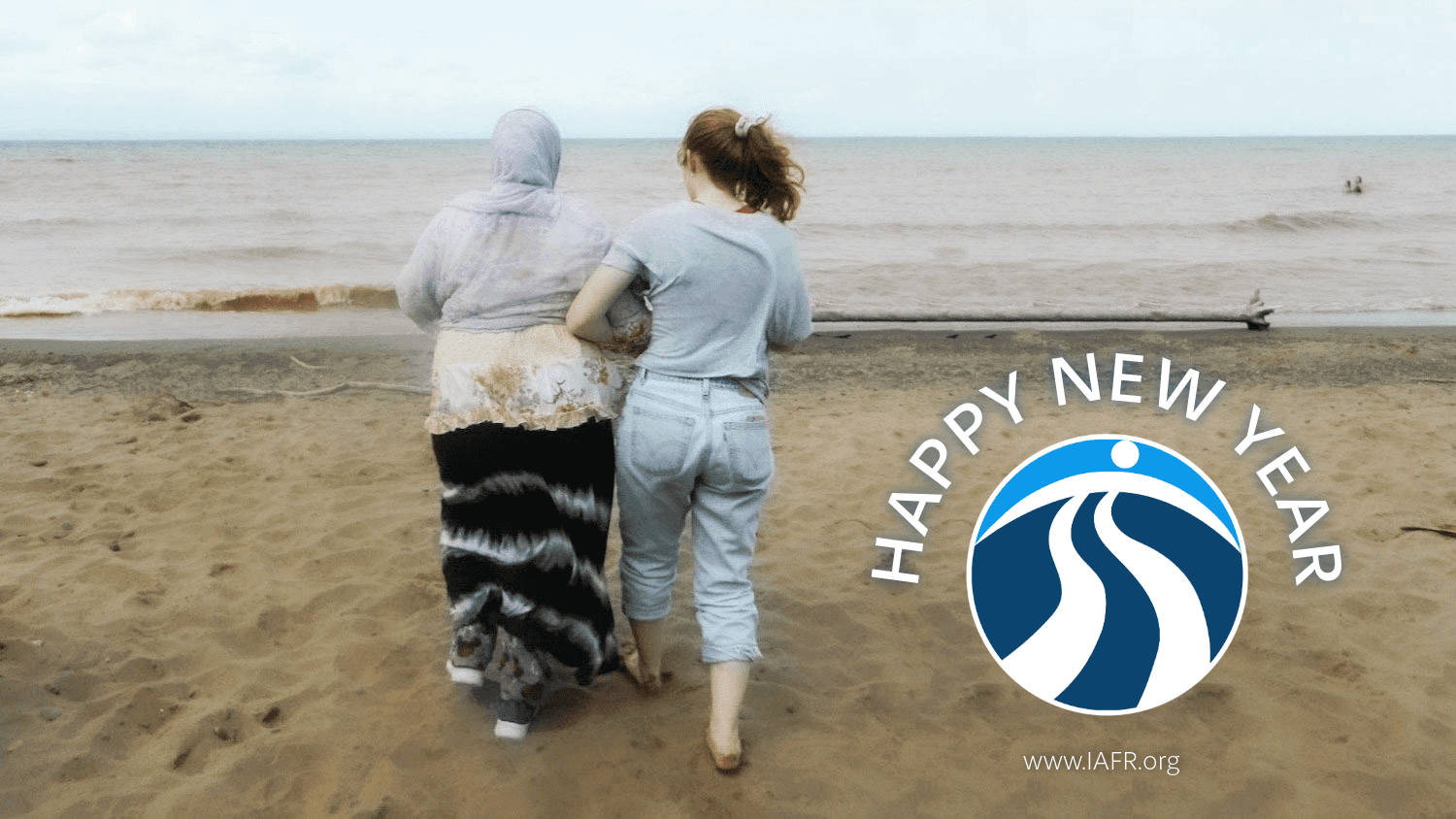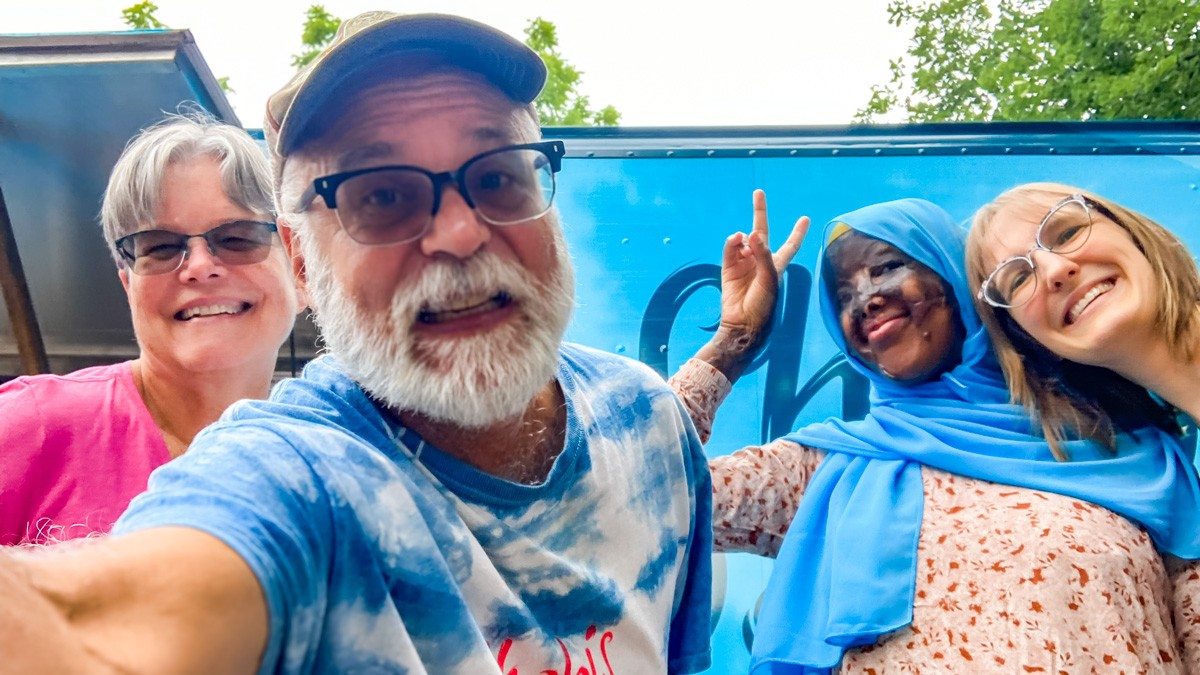Marta’s Story
Oct 16, 2025
- Jaydon Crim
“There was nothing that made us expect anything bad to happen in our country.”
Before the war, Marta worked as a senior nurse in an outpatient clinic near Kyiv, the bustling capital city of Ukraine. She and her husband, Daniel, have two daughters, Natalia and Sofia, whom they adore more than anything in the world.
“We were satisfied with our life in Ukraine. We always believed it was a country with great potential. We loved the culture, the language. There was nothing that made us expect anything bad to happen in our country.”
On the morning of February 24th, 2022, at 5:07 am, Marta and her husband awoke to what they thought was a gas station exploding. It took multiple explosions for them to realize that it was, in fact, war.
“I didn’t understand what I was supposed to do.”
“I had never in my life felt so disoriented as I did at that moment. It completely shattered me, because I didn’t understand what I was supposed to do. It still didn’t fit in my head that I had to destroy everything, break everything down, and run somewhere.”
Marta, Daniel, and Sofia quickly got in their car and headed for the border. (Natalia was in Chile before the invasion started and wasn’t with them at this time.) They didn’t even make it out of Kyiv before being forced to turn back as Russian troops openly fired on civilian vehicles attempting to leave the city. Families, including children, were gunned down and left to burn alive in their cars.
Upon returning to their village, the family spent sleepless night after sleepless night huddled in freezing bunkers as missiles struck so close that they could feel the ground beneath them vibrate and the air they breathed shake.
“It was exactly during those scariest moments — when the sirens were going off and I was sitting with Sofia in a cold basement, terrified I would never see Natalia again — that she would write to me that she loved me. Every time I read her messages, I would just dream of hugging her. I just wanted both of my children to be with me. To hold them. To know they were alive. That we were together. That it was all finally over.”
The threat was getting closer as Russian forces advanced, seeking to occupy Kyiv and its surrounding villages. The door was shutting on Marta’s opportunity to get Sofia to safety and to ever have the chance to hold Natalia in her arms again.
She had no choice but to attempt to flee again, this time knowing her husband would be left behind. Marta and Sofia boarded an evacuation train that allowed only women, children, and the elderly. There was only enough space for them to bring the clothes on their back, travel documents, a phone, and food and water for one day.
“I had basically not eaten for almost three weeks. During that time, I lost 15 kilograms. What mattered to me was feeding my child.”
On that very day, the Russians broke through into their district, and the train pulled away with the sounds of gunfire and bombing in the distance.
“I’m incredibly thankful to the people who supported us.”
Once their train reached the border with Slovakia, events unfolded quickly. Marta and Sofia were welcomed with kindness and compassion, as Slovak businesses personally covered their accommodation costs, local restaurants provided them with prepared meals, and new friends assisted with outfitting them with clothes and helping Sofia enroll in a local school.
The following year, Natalia was able to join them in Bratislava, and Marta was able to embrace her daughters, knowing they were safe at last.
“I genuinely believe that God’s hand was guiding all of this. I’m incredibly thankful to the people who supported us. They helped in every way they could. They took us out to different places, helped distract us, and cheered us up. If it weren’t for them — and if it weren’t for Natalia and Sofia being with me — I know for certain I would not have been able to adapt.”
Now, over 3 years since she first left Ukraine, Marta continues to adjust. She speaks the language well, she is once again working as a nurse, and her family is with her.
“It’s still very hard for me to talk about the future. I just live day by day. Today I have a job, my loved ones are with me, and I have a place to live. That’s enough. I’m content. I’m okay.”
CLICK HERE to learn more about IAFR's Ukraine Response Team.
Other Featured Posts

Reciprocity: experiencing God's blessings together
Feb 19, 2026

An empty seat
Feb 4, 2026

Statement Concerning ICE in Minnesota
Jan 23, 2026

Harvest Season at Hope Community
Jan 15, 2026

Happy New Year!
Dec 31, 2025

Merry Christmas from IAFR
Dec 23, 2025

Love Made Me Forget My Scars
Dec 17, 2025

Hope Has a Name
Dec 10, 2025


